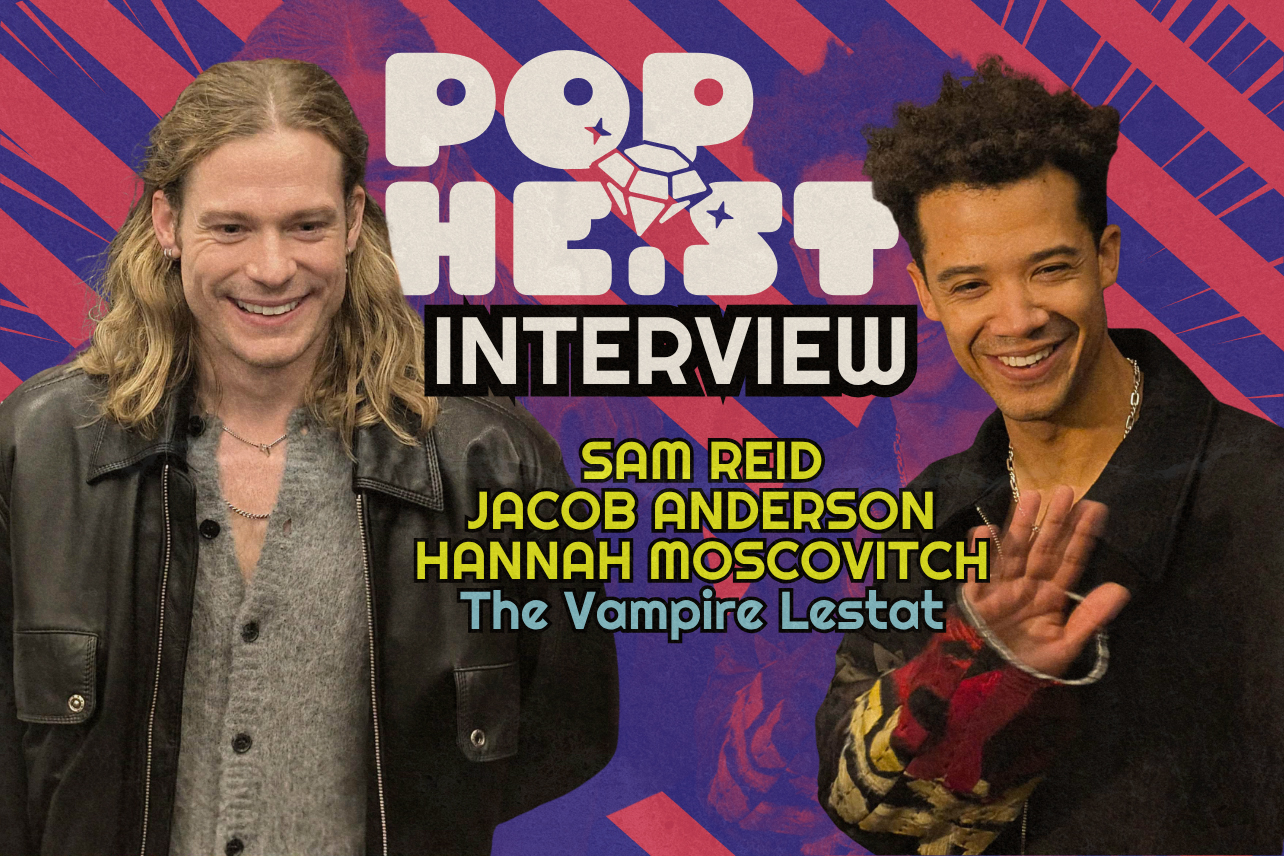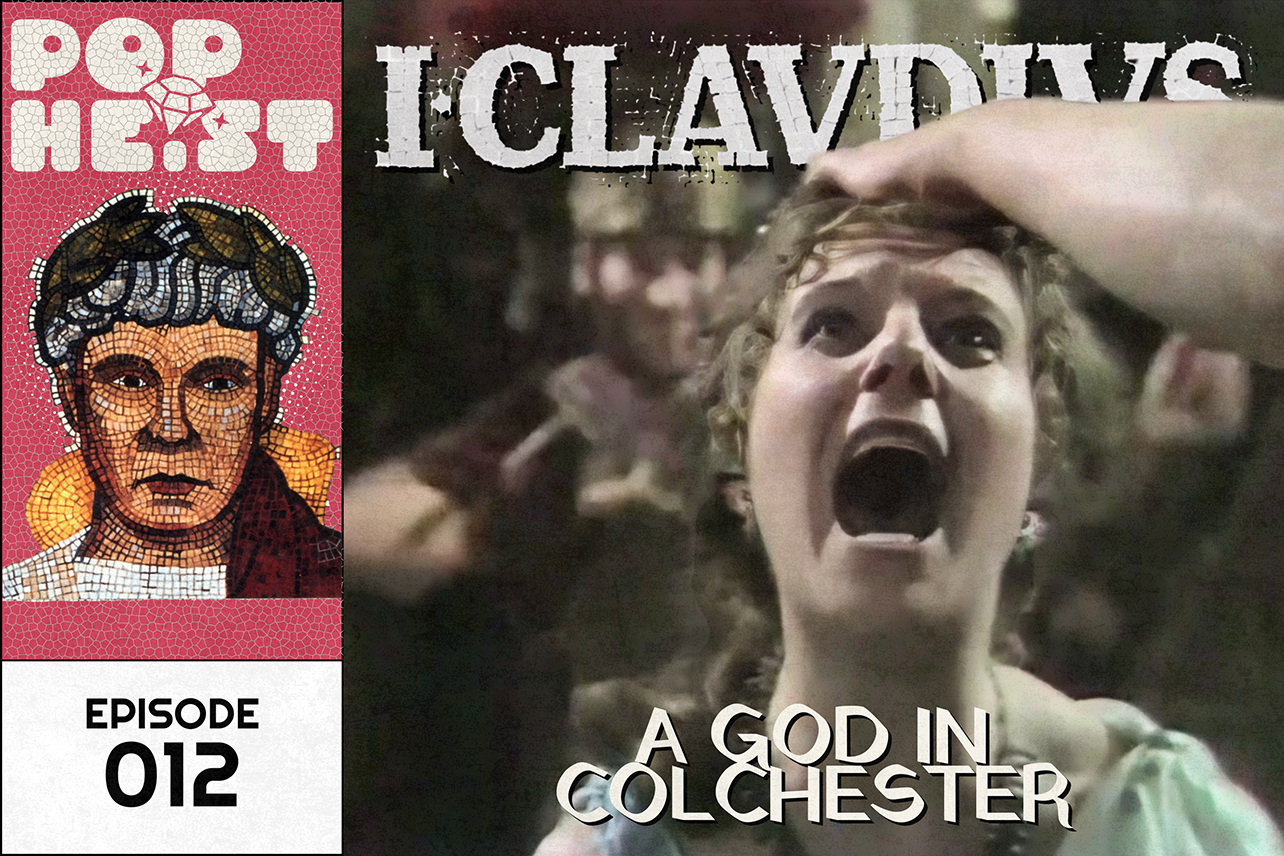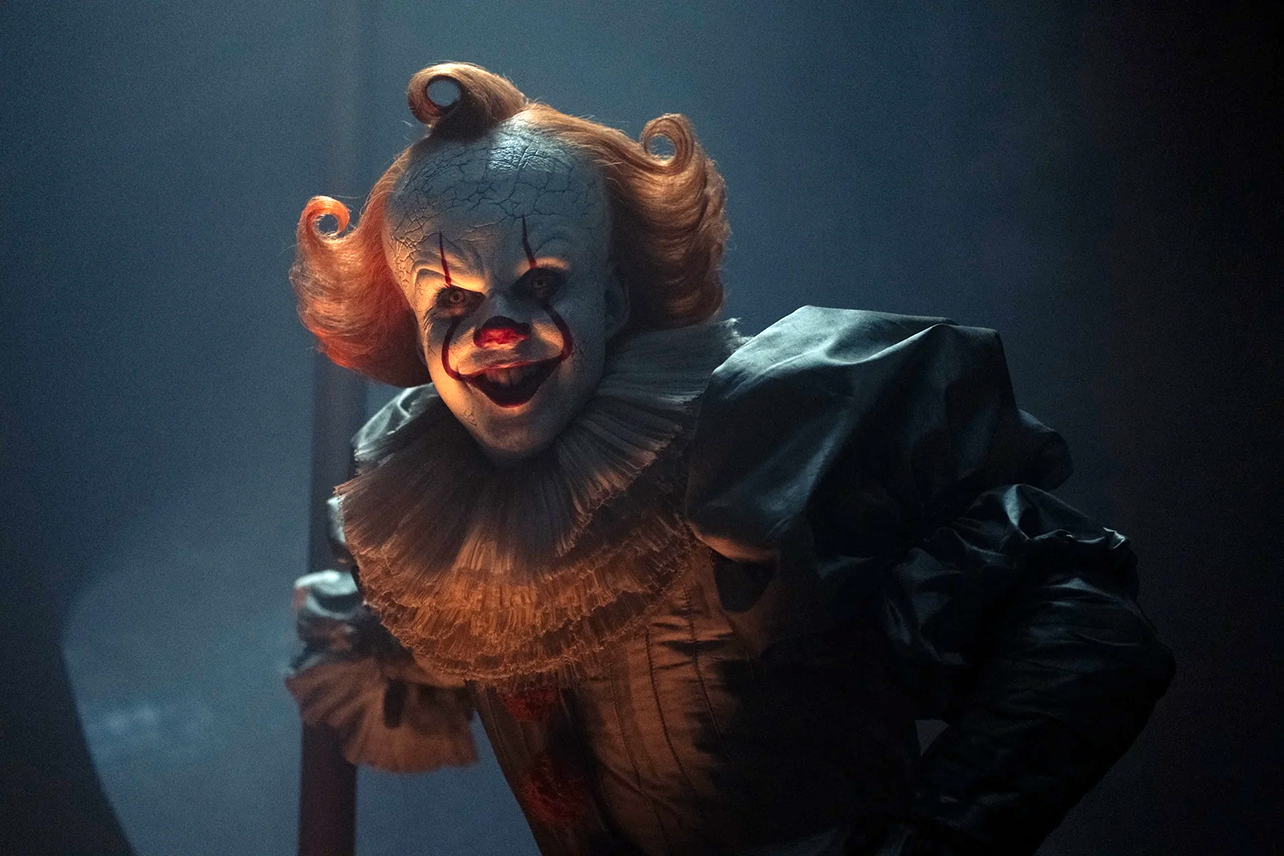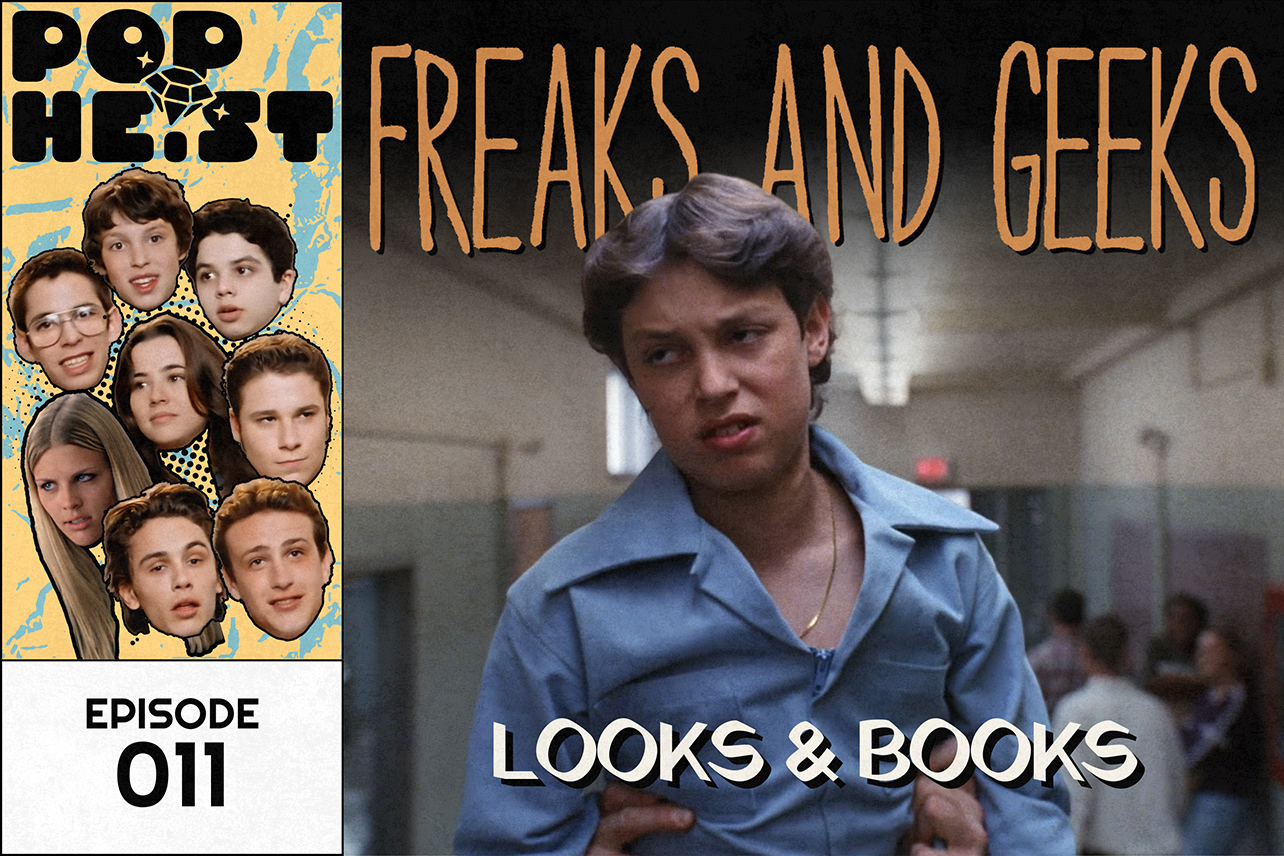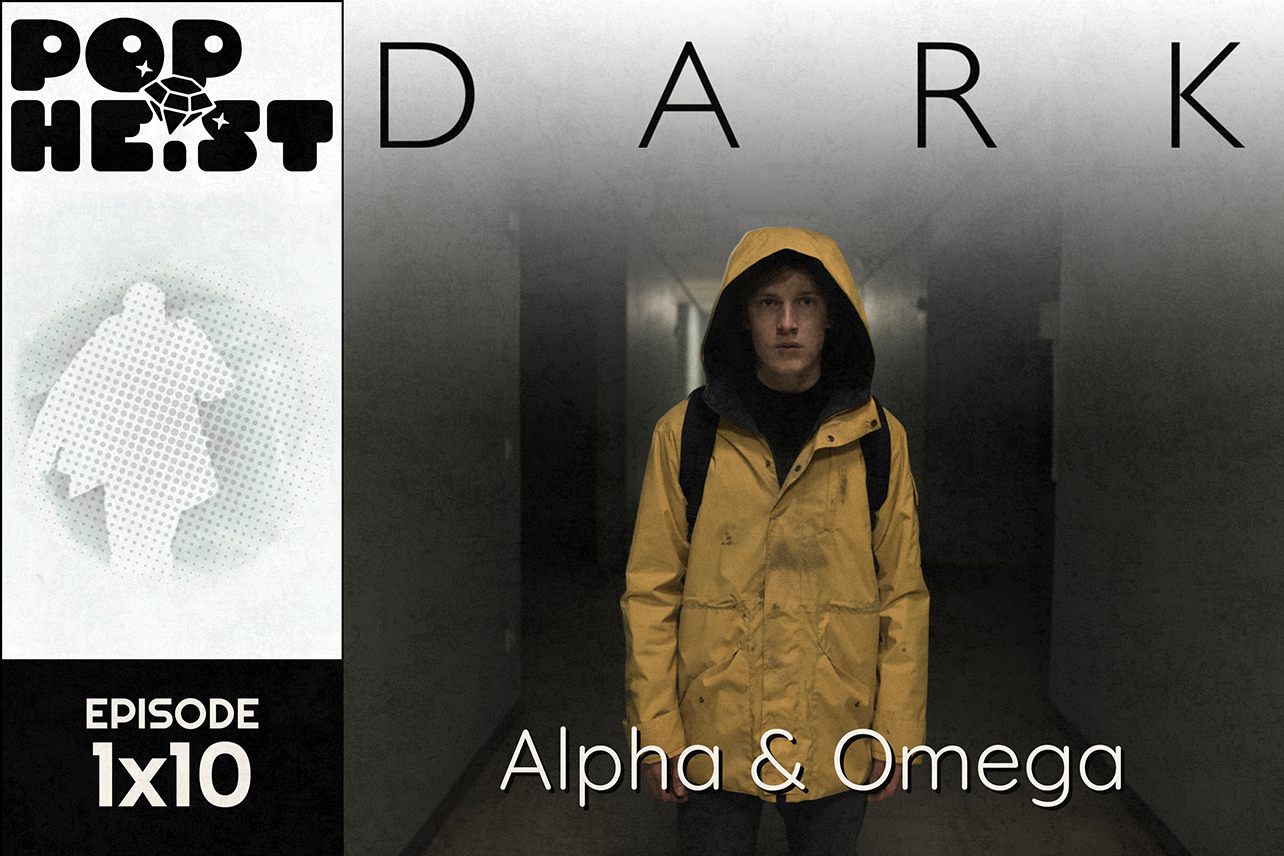The blood was flowing and the emotions were high as the cast and creative minds behind AMC's Interview with the Vampire gathered for a press conference at New York Comic Con 2025. They came bearing stories, secrets (sort of), and more than a few glittering insights into the show's upcoming third season, now officially titled Interview with the Vampire: The Vampire Lestat.
In attendance were executive producer Mark Johnson, writer and executive producer Hannah Moscovitch, and cast members Sam Reid (Lestat de Lioncourt), Jacob Anderson (Louis de Pointe du Lac), and Eric Bogosian (Daniel Molloy). Though the team kept major plot details in the coffin, the conversation was charged with emotional weight — offering an introspective, layered preview of what's to come.
From the outset, it's clear that this season is Lestat's, through and through.
"Reclaiming the narrative … okay, yeah, we can say that," said Sam Reid when asked about the season's title. "Because he's read the book, the book is a real thing, and it does exist in our world, and it's come out. Is he doing it out of love for Louis? I think as a character, in general, I think his love for Louis should be taken as a given, you know, but what that does is going to inform all that he does anyway. And also, the character, his ego is a thing he's constantly grappling with."
Reid continued: "I think I've said it before, you know, like in the books there's a great chapter, I think it's around the time when he's … rescued by Marius and the first thing he says is 'vanity.' So he's always grappling with ego, and the way that (creator) Rolin (Jones) and Hannah have kind of crafted him is, 'What do you get when you put a vampire who takes himself very, very seriously in a position that is not really taken very seriously in the year 2025, when we're dealing with everything shocking at any given moment? … So I think his ego is super present. Reclaiming the narrative for his ego."
Later, Reid was asked one of the more existential questions of the day: Lestat wants so badly to be loved for who he is, but does he even know who that is anymore?
"I think if we had an answer," Reid said earnestly, "I don't think we'd have a show. ... That's the journey, to try to work that out."
"That's the whole season," added writer Hannah Moscovitch.
Season 3 departs from the show's previous interview-driven format. There's no Daniel Molloy–style narrative scaffolding. Just Lestat, left to face the full force of his own memories.
"In Seasons 1 and 2 we had Dubai, and we had a vampire who wanted to be interviewed and who wanted to understand which parts of the past he had forgotten," said Moscovitch. "This season we have none of that. We don't have an interviewer unless it's Lestat himself interviewing himself. And then Lestat remembers everything, but then there's a question about what that memory does to him and how it fucks him up."
She added, "Because if you've lived this life for 265 years and you've gone relentlessly forward, but there's been all this horror in your life and you've never examined it at all, and suddenly you start to sing songs about yourself, all sorts of fucked up things are going to happen. And that's what this season is about.”
When asked whether his performance was shaped by any new inspirations in Season 3, Jacob Anderson shared that his original muses still hold sway:
"I still love to have Grace Jones in my head, and Eartha Kitt," he said. "They're like two big Louis staples in my mind when I think about how he moves and how he looks at other people. I watched loads of Eartha Kitt interviews for Season 1, and I always go back to those."
When pressed about Louis' emotional journey this time around, Anderson hesitated before laughing and passing the mic: "I'm not being evasive, I promise. It's the invention of Rolin, and Hannah, and it's really, really fun stuff, and I wouldn't want to ruin it."
Moscovitch, tagged in, responded with a quietly devastating metaphor:
"Let's say your daughter dies and you put a yellow dress up on the wall to honor her … That's not actually going to fix much, right? Like, how long will that really work? And you can say you want to 'own the night' all you like, but that's going to come in waves. That's some of what we did with Louis this season. 'That's great that he has that yellow dress up there!' But his daughter's dead, and his relationship of 77 years ended, and he has to figure out a whole pile of shit now … His whole life has been broken open.”
Anderson added: "Quite often, most people are like, 'My life is fixed! I found this, and I found that, and I'm doing this, and I'm doing this thing now!' I'm not being specific because I don't want to, you know … Those people quite often, and I can be one of those people as well, crash out. There comes a point where suddenly you lose energy, and the truth comes to light again. It comes to get you.”
Music plays a massive role in Season 3 — so much so that the line between narrative and soundtrack sometimes disappears.
"Everything," said Reid, when asked what kind of music Lestat listens to. "He's kind of got the most eclectic taste that you could possibly imagine, which is quite confronting for the designers — and even Rolin was just telling me that yesterday when he was working on the sound design. But in terms of the character, he's all over the place. He's lived a couple of centuries, and he's taken something from everywhere. So I think he's into everything."
As for what inspires Reid's portrayal of Lestat on stage?
"One thing I always have done, and continue to do, is I've found all of these incredible bootleg videos of David Bowie's Cracked Actor tour that somebody has compiled into singular videos,” Reid shared. "The internet is so wild, it's on YouTube, so you can just find this long-lost concert. And so yeah, that's really inspired me. I look back at that. I think Lestat moves differently to David Bowie — but just that sense of showmanship and magic and mystery is something I look back to.”
And composer Daniel Hart's musical contributions are very much a part of the character's process.
"Daniel presented, and continued to, and is continuing to, while we have two weeks left of filming, just the most extraordinary collection of songs that I have been going over and over and over in my head for close to six months now, so I try not to divert too much.”
Anderson, a singer in his own right under the name Raleigh Ritchie, was asked if any of his own songs ever reminded him of Louis or his relationship with Lestat.
"My songs are so personal that I don't think they could be dedicated to Lestat," he said, laughing. "But yeah, I don't know. It's a weird crossover."
Moscovitch chimed in: "They (Jones and Hart) just inundated you with so much music. They're constantly texting with new music."
Reid added: "I've been barraged with music in a way I never fathomed when I first got this role four years ago. I'm not looking for inspiration. I'm processing, I'm learning my lines ... Lestat does convey a lot of what he's feeling through music; there's always a scene happening on top of it, but there are whole three to five minute songs and multiple times per episode."
He went on to reflect on the vulnerability of performing music live on set:
"Jacob said this to me the other day, that with musicians, there's an inherent ego you need, because it's not like an actor where you're playing a character. Musicians play themselves … They rip open their soul and go, 'This is who I am.' And Lestat has a (stage) persona, but then to be a real musician he has to continue to pull it back. So it's been a process of dealing with the material and trying to find as much truth in the material as possible."
The cast also will be expanding with Season 3, adding one of the most powerful forces in Lestat's life — his mother — who takes center stage this season.
"She's central to this season," said Moscovitch. "We thought a lot about her ahead of time, and, you know, we thought a lot about what it would have been like to be her as a human. To be married off from Italy to France at the age of fifteen, to be married to a really gross man, and whatever happened in that bedroom was bad. And then to have a bunch of children, some of who died, and then two who lived who were 3D copies … like she copied her husband with her body two times. And then she's in this cage.”
"And then Lestat is born, and Lestat is more like her. Lestat is a dreamer, and a hunter, and restless, and inquisitive, and intelligent. And what that means to get close with Lestat and how complicated that can be."
With only a few weeks of filming left and an early 2026 premiere ahead, Interview with the Vampire: The Vampire Lestat is shaping up to be the series' most emotionally rich and musically electric chapter yet. So prepare for trauma, glam, reflection, and maybe even a few glitter bombs — because this vampire is ready to reclaim the mic.
